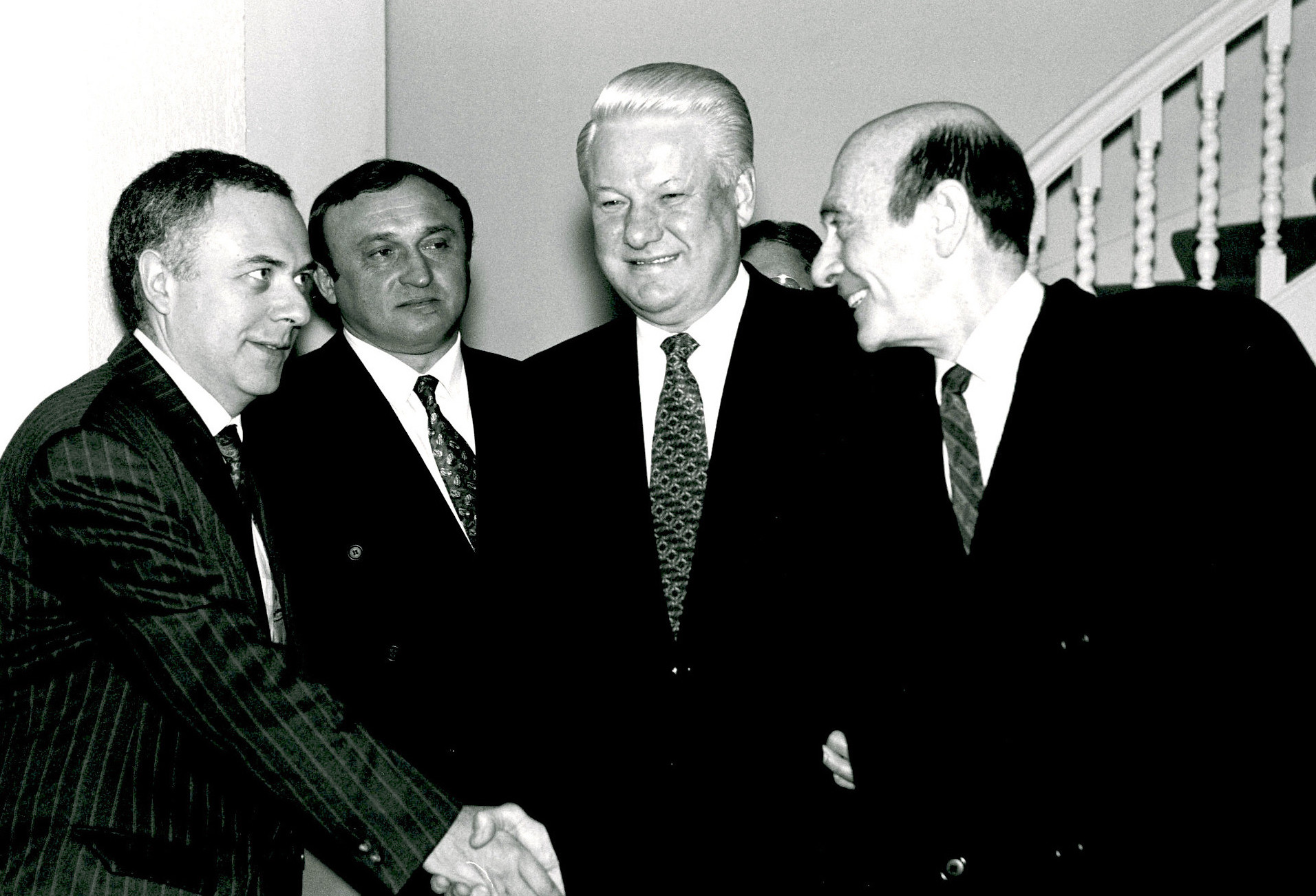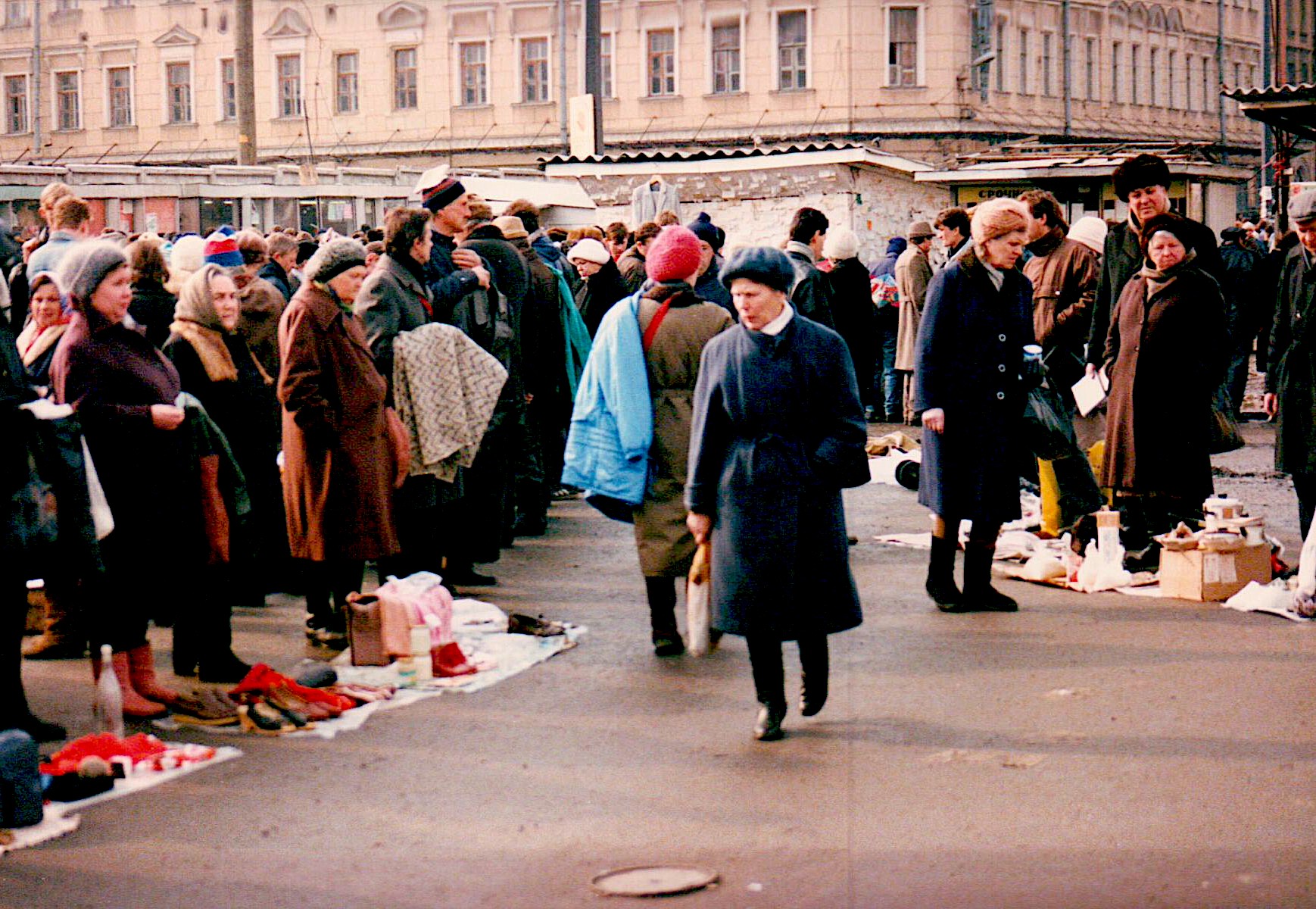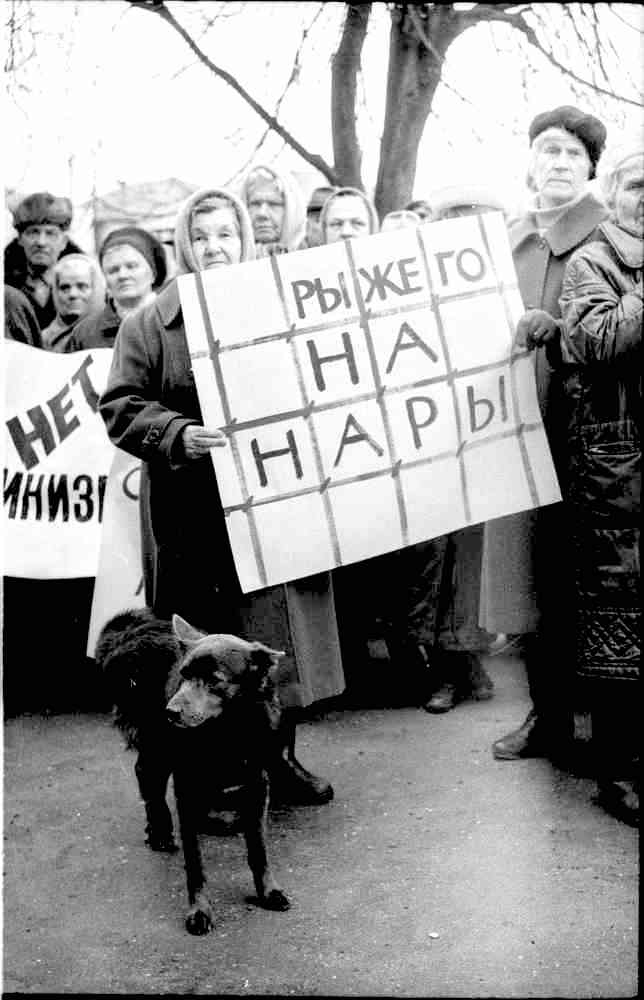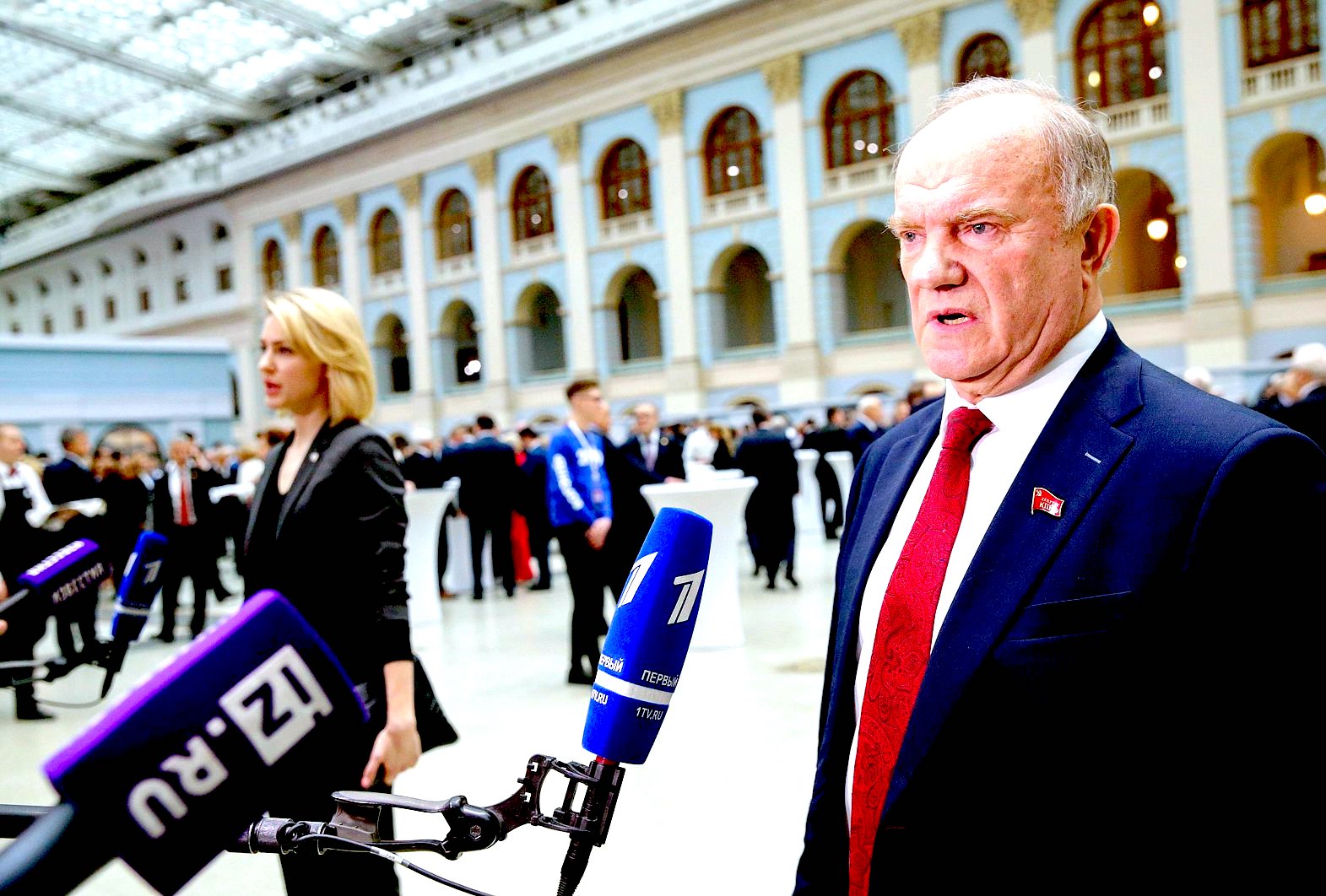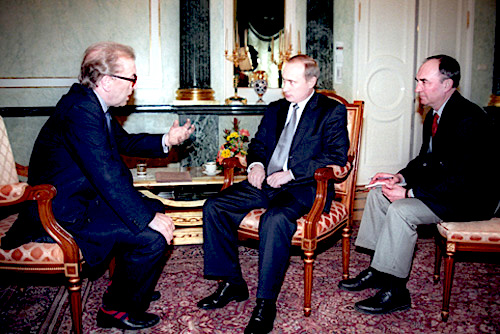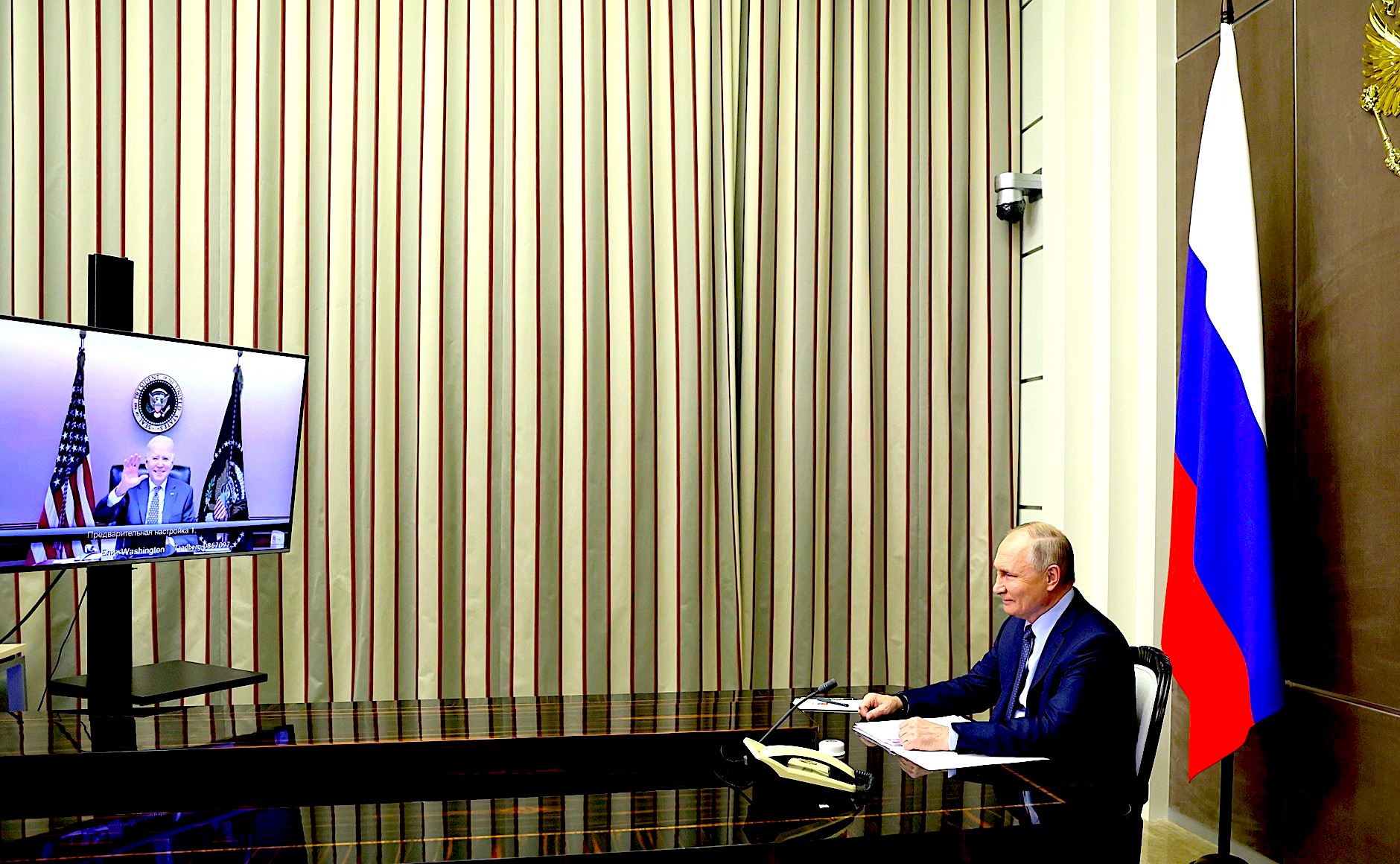Click here for Exit the Cuckoo's Nest's posting standards and aims.
Click here to sign the People's Proclamation and send it to everyone you know.
Source: Strategic Culture Foundation
Explaining Lenin’s Politics and Putin’s Actions in Ukraine
What Putin is doing is combating the violation of Russia’s self-determination. By pushing NATO out of Ukraine, he objectively also acts for the freedom of Ukraine.
❗️Join us on Telegram![]() , Twitter
, Twitter![]() , and VK
, and VK![]() .
.
Contact us: info@strategic-culture.su
This article does not aim to define what nationalities and nations are, but rather to discuss a pragmatic policy that resolves (at least in the short and medium term) the issue of self-determination of Ukrainians, based on Lenin’s ideas and the practice of the Soviet and the current Russian state.
This is a small controversy that will be developed with the text “Ucrania, creación de Lenin”, originally published by Pedro Fernández Barbadillo on the “Libertad Digital” portal and reproduced on the Strategic Culture Foundation.
Self-determination in the Russian Empire
During the validity of the Russian Empire, the people who lived in the region then called “Little Russia” (Ukraine) were oppressed by the Imperial Russian government, as was the majority of the empire’s population, made up of nationalities lacking all types of rights.
Russia observed the emergence of a nationalist movement from the middle of the 19th century, in the wake of the “Spring of the Peoples” of 1848, when both the popular masses of the great European nations, as well as the people of nationalities colonized and oppressed by them (within Europe) rebelled against the monarchy and aristocracy.
The Russian Empire was the most reactionary and backward in all of Europe and led the counter-revolution. It was not interested in any significant change, not even in other European powers, as it knew that this would influence political changes in its own territory. That’s why it supported the repression against the Hungarians by Austria, for example, as well as repressing the Poles. Nationalist agitation crossed Central and Eastern Europe and even the First World War was triggered by nationalist action (the assassination of the Austrian prince by the Serbs), although it was an imperialist war.
Thus, it is frightening to read, in the article cited above, that nationalist movements only existed in Poland, Ireland, the Baltic countries and Arabia and that, only after Brest-Litovsk and the fall of the Habsburgs, in 1918, did they spread throughout Eastern Europe!
Nationalism was a natural feeling in the face of the oppression suffered by dying empires. Its essence is the same as that of the great national liberation movement that took place in Asia and Africa in the middle of the 20th century.
For Lenin and the Bolsheviks, heirs to the theses of Marx and Engels and, as Marxists, to the Enlightenment ideas that had guided the struggle for independence until then, it was an obligation to recognize and support those who wanted independence in the face of an oppressive State. This independence was not in contradiction with the supreme idea of the Marxists, the unity of the proletarians of the whole world. Lenin wrote in June 1917:
“Only the recognition of this right makes it possible to advocate the free union of Ukrainians and Great Russians, a voluntary association of two peoples in one State”
Lenin and the Bolsheviks, despite seeking – and managing – to take power within Russia, were absolutely not responsible for any policy carried out by tsarism. The use they would make of the Russian State would be the opposite of what had been done by the monarchy: the State of the Soviets was the State of freedom, not of oppression.
Anyone who studies geopolitics knows very well that the use of “soft power” is much more desirable than the use of “hard power” for any nation. The United States, for example, knows that oppression of people around the world is exhausting, unpopular and unstable. Even more so if it is open and evident. That’s why they talk about bringing democracy and freedom, even though in practice the economic oppression of “independent” countries is as enslaving as military oppression. Who wants to live crushed by oppression like this? Absolutely no one!
That is, analyzing strictly from a pragmatic and non-ideological point of view, it is more desirable for a superpower to dominate through consent than through coercion. Hence, even for the widows of tsarism, territorial domination of Ukraine and other neighboring nations would be negative.
On the other hand, reality also imposed itself. The Bolsheviks had inherited a country in ruins, destroyed by the work of the tsarist regime itself. Pedro Fernández Barbadillo thinks that the Russian Revolution – which he calls a “coup d’état” – was a bolt from the blue, carried out by “a handful of Bolshevik agitators” sent by the II Reich to weaken Russia and hand it over to Germany. This is the same litany promoted by the resentful people of 1917.
The truth is that the Russian Empire had become rotten. It could no longer compete with the imperialists. The humiliating defeat to Japan in 1905 was proof of this. The situation of the Russian army at the beginning of 1917 leaves no doubt. If the Bolsheviks had not taken power, Russia would possibly not have become the Soviet power, defeated only seven decades later, but certainly the workers would still have defeated the monarchy definitively. It was a historical necessity, not a stroke of luck. The enormous popular, peasant and worker movement would have taken over the country in one way or another, as poverty, hunger, lack of land to cultivate and mass deaths could not be tolerated any longer. What’s more: those same people who accused the Bolsheviks of being at the service of Germany allied themselves with the foreign powers, who invaded Russia, to fight their compatriots. Truly, they had a great love for their homeland!
Soviet power, proof of Lenin’s success
The siege by 14 invading armies and the economic and material destruction caused by the czar’s disastrous administration – in every possible way – pointed to a situation of total disadvantage for the Bolsheviks. In fact, many, among the leaders of the new regime, did not believe that the Soviet State would emerge victorious. All Western newspapers assured that Soviet power would fall in a matter of weeks. Continued Russian participation in the world war would mean Russia’s imminent defeat. Lenin realized that the only viable solution for peace within Russia and the chance to rebuild the country was to make concessions to the imperialist powers.
Sun Tzu already taught 2,500 years ago, that if the enemy is superior to you, avoid him. Even more so if there are 14 armies! You have to know when to fight and when not to fight. In the specific case of Ukraine at the time of the signing of the Treaty of Brest-Litovsk, there were five armies of 100,000 men each, which occupied part of Ukraine, and the weakened Russian army was unable to help the weakened army of the Soviet forces in Ukraine.
Finally, after the Treaty, which Lenin himself never hid was humiliating for Russia, but which was the only viable option, and in the face of Germany’s defeat in World War I, in the midst of the Russian Civil War the Red Army attacked the counter-revolutionary allies to the invaders in Ukraine. The commander of the Red Army, Leon Trotsky, exhorted the red soldiers:
“Keep this firmly in your minds: your task is not to conquer Ukraine, but to liberate it. When Denikin’s bands have finally been crushed, the working people of free Ukraine will decide for themselves on what terms they will live with Soviet Russia. We are all sure, and we know, that the working people of Ukraine will opt for the closest fraternal union with us.”
The Red Army defeated the counter-revolutionary and invading troops. Ukraine came under the control of its own people, the workers Ukrainians, in voluntary and fraternal union with the Russians. This union was ratified and formalized on December 30, 1922, when Russia, Ukraine, Belarus and Transcaucasia formed the Union of Soviet Socialist Republics.
It was proof of the correctness of Lenin’s policy regarding the right to self-determination of peoples. He predicted, back in 1915, that only the struggle for self-determination and voluntary union between peoples would enable the formation of a strong multinational State on the path to progress:
“The defense of this right, far from encouraging the creation of small States, leads, on the contrary, to the freer, bolder and, therefore, broader and more extensive formation of large States and federations of States, more beneficial to the masses and more in line with economic development.”
In fact, the principle of the right to self-determination of peoples is a bourgeois principle, which emerged when the bourgeoisie still constituted a progressive and revolutionary class, and has been claimed since the French Revolution of 1789, through the revolutions of 1848, to the present day. But the bourgeoisie itself abandoned this principle, when it stopped being a progressive class and began to lead the international reaction against the peoples of the world. Those who defend it now are the workers, and, to a lesser extent, sectors of the bourgeoisie of countries that suffer precisely from national oppression by the great imperialist powers.
The formation of the USSR signifies this transition. The Bolsheviks did not claim the people’s right to self-determination as an empty word, without effect, but they carried it out. The following statement by Pedro Fernández Barbadillo is absolutely false:
“This political principle is one of the most destructive in international law and has caused great instability, as it was a way for great powers to intervene in small and medium-sized companies under the excuse of protecting ethnic minorities.”
The right to self-determination of peoples, in fact, is one of the most basic and essential, because it is a recognition of the legitimacy of the struggle of oppressed peoples for their liberation. If this right did not exist, it would not make much difference, because people would continue to fight for their independence in the same way. Because it is a necessity. What the people of Palestine, Iraq and Syria are doing right now is precisely fighting for their self-determination. Palestine was occupied almost 80 years ago by a foreign force, Iraq and Syria have imperialist military bases in their territories.
It is not the right to self-determination of peoples that causes instability in countries, but rather their disrespect for imperialist powers. If Syria were not oppressed by American and European imperialism, both militarily and economically, that is, if it were fully independent, the situation of the Kurds would be very easily resolved. The oppression exercised by Saddam Hussein over the Kurds of Iraq was only possible – at least at that level – thanks to the support he received from the United States. At the same time, Saddam Hussein was an instrument of the American power to oppress the Iraqi people – as well as the Iranian people, who had their country invaded by Hussein’s troops.
It is obvious that great powers use ethnic minorities to destabilize countries around the world. European colonialism already did this in Africa centuries ago. But this does not mean that the demands of these minorities are illegitimate. The problem with imperialist powers is that their governments do not have principles, but rather a policy of convenience. When it was not appropriate to support the rights of the Kurds in Iraq, they did not support them – they helped to repress them. When appropriate, they supposedly support them. Lenin, in turn, acted according to his principles and never according to convenience.
Yet another false statement from the writer we are arguing against is the following:
“The Reds admitted the right to self-determination only if it served to destroy traditional institutions and loyalties.”
Some examples cited above refute his statement. In Ukraine and Finland, where supporting their independence was not positive from an immediate point of view, the “reds” supported it because they knew that strategically, in the long term, this would be positive. Lenin even supported Georgia’s self-determination when it was already part of the USSR! Again, the maxim of the Leninist Bolsheviks was that people should be convinced to unite, not forced. More than anyone else, this benefited the people of Soviet Russia, the vanguard of the international revolution against the bourgeoisie and imperialist powers. A fair policy that respected the full freedom of neighboring peoples guaranteed the revolutionaries, even if it took time, the trust of other peoples.
Barbadillo against Barbadillo
Unfortunately, Lenin’s correct policy was betrayed by Stalin. Stalin – and he alone, not together with Lenin, as Barbadillo claims – created a “local oligarchy” (the apparatchiks, the Stalinist bureaucracy) in the republics that formed the Soviet Union, in the mid-1920s. Rather than ensuring the independence of the workers and peoples of the entire USSR, which would guarantee his support for the free union of the Soviet peoples, he imposed the Russification of these republics, imitating what “the tsars did in the countries they conquered” – according to the author’s own words.
And that’s when Barbadillo begins to contradict everything he had said! Without differentiating Stalinist politics from Leninist politics, that is, blaming the “reds” and the October Revolution, he writes that Moscow wanted the disappearance of the Ukrainians, considered “enemies of the Soviet State”, for which they were repressed with the “Holodomor” and deportations and persecutions. If, at the beginning of his article, he indicated that Ukrainian nationalism was non-existent, now he says that Ukrainians have become “anti-Russian”!
The reason for all the author’s attacks on Lenin and the Bolsheviks is exposed. This is not a defense of Russia, but pure anti-communism. From a defense of the oppression imposed by the Russian Empire on the Ukrainians, he moves to the defense of Ukrainians against the alleged oppression imposed by the communists. Above, we mentioned that imperialist powers have no principles and act according to their convenience. This policy is not limited to States and governments, but is also adopted by mere individuals at the level of Mr. Barbadillo!
So that there is no doubt about the purely anti-communist intention of his article, he mentions the “communist fifth column in European and American countries”, apparently already in the second half of the 20th century. In other words, those who fought precisely against the imperialist powers, who oppressed small and medium-sized nations around the world, are for him a “fifth column” within these countries, at the service of the Russians. He recognizes, at the same time, even if timidly, that those who fought for the independence of Latin American countries (then occupied by military dictatorships serving the U.S.) and against the subordination of European nations to American imperialism were enemies of these countries. But they could only be enemies of the governments of these countries, true puppets of the main imperialist power in the world, and not of the people of these countries, who wanted true self-determination.
Barbadillo is Spanish. At that time, Spain was controlled by the fascist dictatorship of Francisco Franco. Although the U.S. sold itself as the promoters of freedom and democracy, those who would have defeated fascist and Nazi barbarism in World War II, used fascist Spain as a colony and filled the dictator’s pockets. Those who opposed this were precisely the communists. Today, even 50 years after the collapse of Francoism, Spain remains a vassal state of the United States. It is a lower-level imperialist country, which lives off the conquests of its colonizing past and the oppression it still imposes on Catalonia and the Basque Country. Contrary to what they do in China (on Taiwan, Hong Kong and Xinjiang), in Syria, Iraq and Iran (on the Kurds), in Latin America (on indigenous people), the United States has never promoted a campaign in favor of self-determination of the Catalan, Basque or Galician peoples. Precisely because this would destabilize Spanish vassal imperialism. Just as the legitimate independence of Scotland would destabilize the crumbling British imperialism, another vassal of the US.
It is not the place of this article to discuss whether socialist ideology is more or less inherent to human beings than nationalism. Barbadillo argues that nationalism is “much stronger” and “even inherent” in human beings than socialism, and that this is one of the lessons about the existence of the Soviet Union. This conclusion comes after saying that Lenin created Ukrainian nationalism and indicating that there is no Catalan, Scottish or Flemish nationalism! And worse, after defending as an essential thesis that the self-determination of peoples (that is, the recognition of national struggles) is nothing more than a pretext for the great powers to intervene in other countries!
What a contradiction! But, I say it again: the imperialist powers and their defenders have no principles. They act for mere convenience.
Putin writes correctly with crooked lines
There has been much discussion since the start of the special military operation, on February 24, 2022, about Ukraine’s self-determination. American and European imperialism, which has enslaved Ukraine for more than 30 years, and in fact prevented its self-determination, accuses Russia of violating that self-determination.
But Western propaganda hides that, in addition to violating Ukraine’s self-determination, the U.S. and NATO also violate Russia’s self-determination. And that has always been the case! Even when Lenin was alive, Russia was invaded, blockaded and isolated from the world. Then, a “cold war” was imposed on it, a monumental sabotage of its right to exist. Ultimately, this war – which was external and internal, since Stalinist bureaucrats were, in fact, at the service of destroying the USSR – culminated in the collapse of Russia and neighboring nations before the neoliberal empire. To this day, Russia struggles for its self-determination, which has not yet been achieved due to intense imperialist oppression. The NATO siege is the most obvious example of this oppression.
Therefore, what Putin is doing is combating the violation of Russia’s self-determination. By pushing NATO out of Ukraine, he objectively also acts for the freedom of Ukraine, enslaved by the imperialist powers. Putin has already managed to liberate part of Donbass, where a large part of the population is of Russian nationality and had already been fighting for self-determination since the 2014 imperialist coup in Kiev. According to Barbadillo’s logic, Russia would be using the people’s right to self-determination as a way to intervene in Ukraine under the excuse of protecting the Russian ethnic minority.
And he really thinks so, as he compares Putin’s action in the Donbass with Hitler’s action in Central Europe to “unite the Germans into one state”. The big difference is that Hitler’s Germany was an imperialist nation expanding upon oppressed nations, while Putin’s Russia is an oppressed nation fighting the expansion of imperialist powers. Barbadillo’s confused mind, which previously thought that nationalism was non-existent and then that it was inherent to the human being, is unable to differentiate an oppressor nation from an oppressed nation.
The Russian Empire oppressed the Ukrainians, but it no longer exists. It doesn’t matter if there are Putin’s supporters who want it, or even if Putin himself wants to rebuild that empire – as his detractors say. The Russian Empire is a thing of the past that will never return. The conditions of development of the world capitalist system do not allow this. The Russians know this. The Russian government itself admits that its country belongs to the “Global South” and has no pretensions to world domination like Germany had and like the US always had.
Analyzing objective conditions, without any ideological filter, the reconstruction of the Soviet Union is more possible than that of the Russian Empire. The people of Crimea and Donbass desired their reintegration into Russia and reconquered it. The Belarusian people are in favor of a new union with Russia and for almost 30 years Lukashenko has been working within the perspective of the Union State. The Eurasian Economic Union increasingly reintegrates the nations of Central Asia into Russia.
Although at this time this new union is not socialist, these measures promoted by Putin are not opposed to Lenin’s policies. The former Russian leader had already mentioned a similar – and even less democratic – situation that occurred in the second half of the 19th century, when Bismarck unified Germany. Lenin, like Marx and Engels, considered German unification as a progressive factor and, just like Putin with Donbass and Crimea, “Bismarck boosted economic development by unifying the scattered Germans, who were oppressed by other peoples”. These words were written in 1915, in the article “The national pride of Russians”. He also said, as if responding to Barbadillo:
“We are by no means unconditional supporters of infallibly small nations; other things being equal, we are absolutely in favor of centralization and against the petty-bourgeois ideal of federative relations.”
The reservation highlighted by Lenin himself (“other things being equal”) is to highlight that, unlike the imperialists, Lenin’s supporters defend a union based on equality, and not on oppression over other nations. As long as there are equal rights, socialists are in favor of the total union of nations in the same State, as was carried out a few years later with the founding of the Union of Soviet Socialist Republics.
The “Declaration of the Rights of the Working and Exploited People”, of 1918, said, in Chapter IV, Article 8:
“In striving to create a truly free and voluntary and, consequently, more complete and solid union of the working classes of all the nations of Russia, the Third All-Russian Congress of Soviets limits itself to establishing the essential principles of the Federation of Republics of the Soviets of Russia, reserving to the workers and peasants of each nation the right to decide freely in their own national Congress of Soviets whether they wish, and on what basis, to participate in the Federal Government and in the other federal institutions of the Soviets.”
Five years later, the USSR Constitution of 1923 stipulated:
“4. Each federated Republic reserves the right to freely secede from the Union.”
And Article 6 guaranteed that, “for the reform, restriction or derogation of Article 4, the consent of all federated Republics will be necessary”. At the same time, Article 7 ensured: “citizens of the Federation shall enjoy the unique citizenship of the Union.”
The centralization subsequently imposed by Stalin did not occur through democratic means, as the soviets and other independent bodies of workers, peasants and the people in general had already been dismantled. However, it was in line with what Lenin advocated in 1915 in favor of the unity of the multinational State.
Although not as complete as in the early USSR, the right to self-determination has been recognized by the current Russian government with respect to Donetsk, Lugansk, Kherson and Zaporozhye. The populations of these territories freed from occupation by the Ukrainian armed forces and fascist groupings (and NATO) were able to vote freely in referendums supported by Russia, just as the population of Crimea had done in 2014. They freely decided to separate from Ukraine and join the Russia later. The U.S., NATO and Ukraine do not recognize this right, Russia does. Just as it recognizes the rights of peoples around the world, in Europe – with the tacit support to the Catalans and Scots –, in Africa, Asia, Latin America and in its own territory, despite, in practice, national minorities still do not enjoy full equality with Russians – just as Russian workers do not enjoy any equality in relation to their Russian employers (still, respect for national rights is greater in Russia than in Spain or the United Kingdom).
If it were not for the defense of the right to self-determination of peoples, initiated by Lenin and the Soviet Union, and continued by Putin – although without the same forcefulness as the Bolsheviks, for reasons of defending different interests –, today Russia would not have the prestige that it has among poor and exploited countries. If it were not for this defense, the people of Africa, Asia and Latin America would not be supporting Russia today in its fight against NATO and imperial domination of the world. Oppressed countries see Russia as a strong ally in defending their rights to self-determination thanks to the authority that Russia has due to its history of defending this right since Soviet times. And this started with Lenin, although some have difficulty recognizing this.

 RSS
RSS

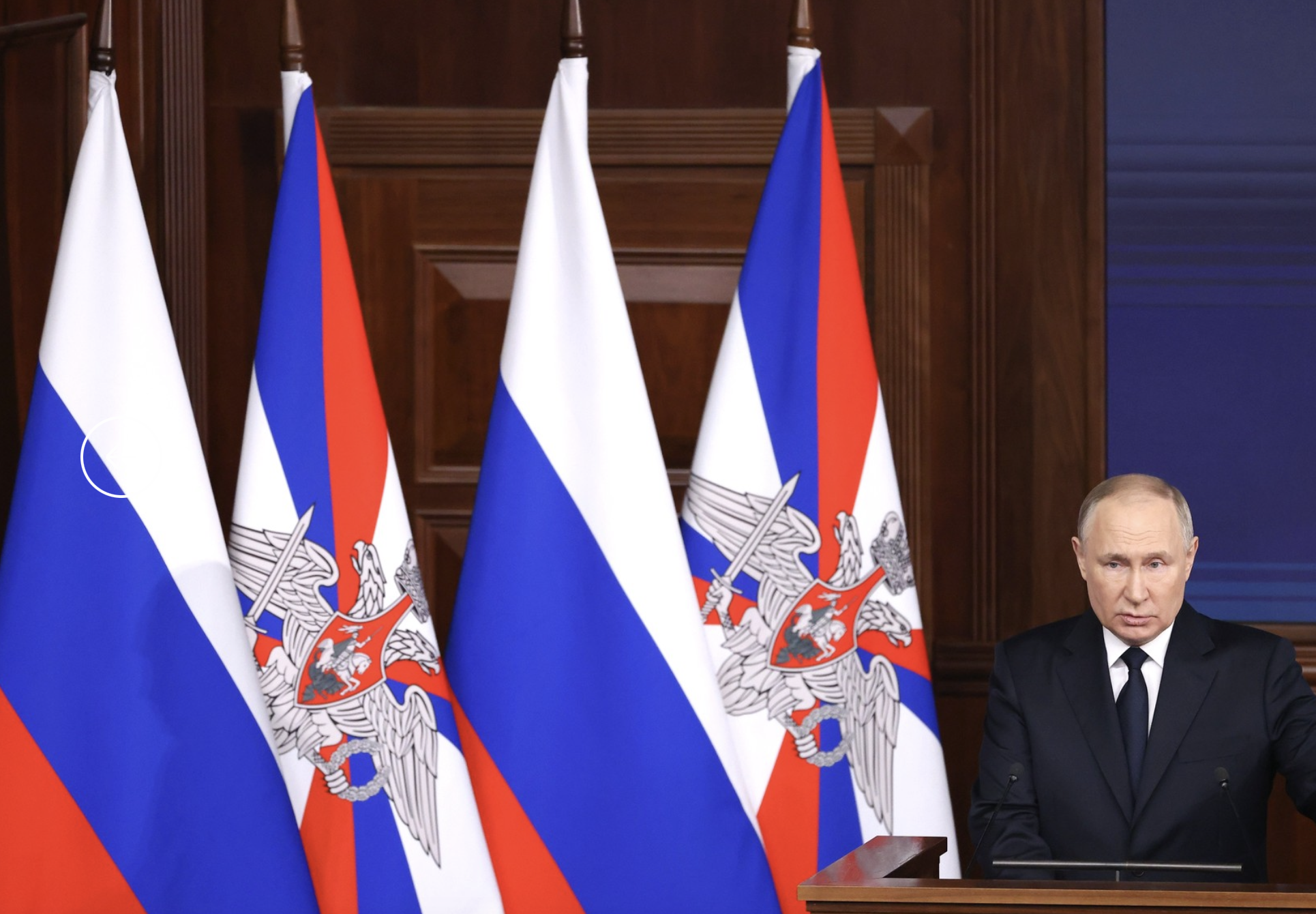
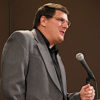 R
R